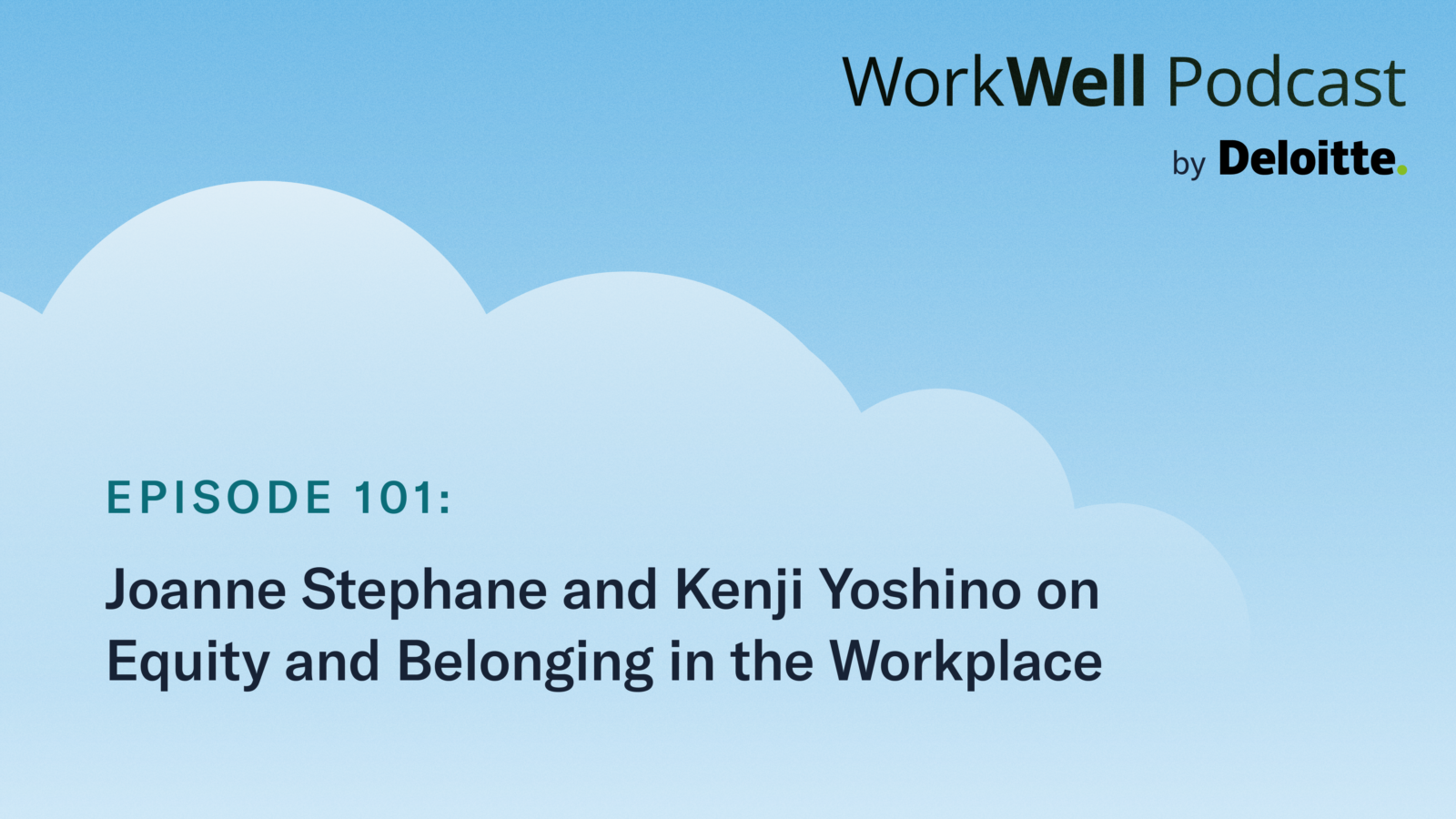In the WorkWell Podcast, by Deloitte, Jen Fisher — Human Sustainability Leader at Deloitte and Editor-at-Large, Human Sustainability at Thrive Global — sits down with inspiring individuals for wide-ranging conversations about how we can develop a way of living and working built on human sustainability, starting with ourselves.
This week, Joanne Stephane, Executive Director of the Deloitte DEI Institute, and Kenji Yoshino, Professor of Constitutional Law at NYU and faculty director of the Meltzer Center for Diversity, Inclusion, and Belonging, discuss the practice of “covering,” in which people downplay aspects of their identity at work to avoid negative reactions. And they share ways that organizations can better support people and help them be their authentic selves.
On the meaning of ‘covering’ at work:
Kenji Yoshino: “As a gay man, no sooner did I arrive at Yale than a well-meaning colleague put his arm around me and said, ‘Kenji, you’ll have a much smoother ride to tenure if you are a homosexual professional rather than a professional homosexual.’ What he meant was, you’ll do much better if you just don’t talk about gay stuff, and don’t write about gay stuff. It’s this idea of being openly gay, but, downplaying it. And that is covering. Covering is the key, not just to my life as a gay man, but to the black person who’s told, ‘Straighten your hair if you want to be taken seriously as a professional,’ and the woman who’s told, ‘Don’t talk about your kids, or you’ll get pigeonholed as a caregiver.’”
On the impact of covering on well-being:
Joanne Stephane: “In our research we found that when people were covering they felt emotionally drained. It had a negative impact on opportunities that they felt were available to them — they spent a lot of time pretending to be somebody else, and feeling like they had to mirror the behaviors of the mainstream in order to be perceived as more professional. It also impacted their commitment to their organization and their ability to perform their jobs as well as they thought they could. Survive might sound like a strong word, but really it is about that — if I want to be successful, if I want to thrive, then I can’t be my full self.”
On the need to be authentic:
Kenji Yoshino: “No matter how much an institution says to us: ‘leave that at home, don’t talk about that,’ if it’s something that is part of the fabric of our being, it will come out in one way or another, or we will just be thwarted and frustrated. We are not infinitely malleable or plastic. There is such a thing as an authentic self, and that self cries out to be heard. And if an organization can’t supply that to the individual, then the individual is either going to go to another organization or remain at that organization without realizing their full potential.”
On what organizations can do better:
Joanne Stephane: “It really does start with leaders. It’s incumbent upon leaders to create the environment and psychological safety that’s needed. You need both equity and belonging to be successful. It means addressing those inequitable areas, and helping people feel that they can show up as their authentic selves, and that they have everything that they need to be able to thrive.”
To hear more from Jen, Joanne, and Kenji, listen to this full episode of WorkWell here, available wherever you get your podcasts. Visit the WorkWell library for the full collection of episodes. For additional insights, read the report Uncovering Culture, a collaboration between Deloitte’s DEI Institute™ and the Meltzer Center for Diversity, Inclusion, and Belonging at NYU School of Law.


